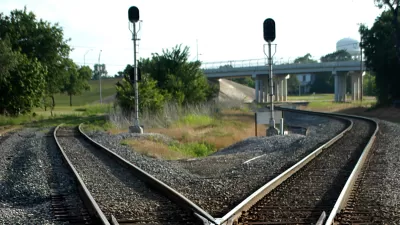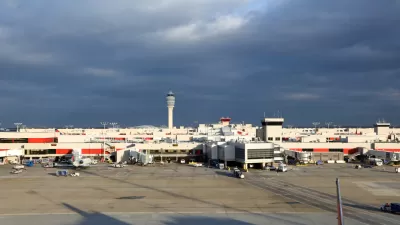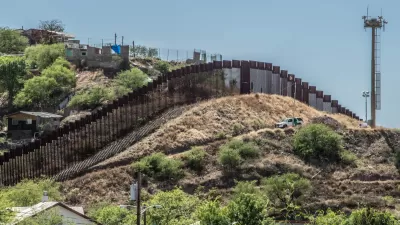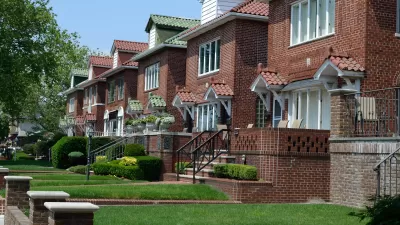President Trump's proposed infrastructure plans intends to shift ownership of much of America's infrastructure into private hands. Rebecca Burns argues that this approach will benefit the country's richest at the expense of the rest of the country.

Many have worried about America’s loss of strength in building infrastructure (link) and have concerns that the country's infrastructure costs continue to ratchet up out of proportion with other nations. In proposing a great expansion of the country's infrastructure through loans to private companies, the Trump Administration has what it hopes is a solution to both problems. "Trump and Bannon’s apparent rejection of neoliberal orthodoxies, including fiscal austerity and free trade, inspired hope that progressives might actually be able to negotiate with Trump on a small number of economic issues—if they could avoid collaborating in an otherwise racist, reactionary agenda," Rebecca Burns writes for In These Times.
The idea of bringing more private ownership to the U.S. infrastructure is not new and has been forwarded by some in the Democratic Party. But the Trump Administration seems poised to expand beyond areas explored in the past. "The President announced a 'great new era in American aviation,' meaning he was asking Congress to privatize the air-traffic control system," Burns writes.
Who is pushing to take the job of upgrading infrastructure out of government hands? Lobbyists. "Among the industry groups that have lobbied the administration and Congress on an infrastructure overhaul so far this year, according to federal lobbying disclosures, are BlackRock, the world’s largest investment management company; the Securities Industry and Financial Markets Association, a Wall Street trade group; American Water, a private water company; two private tolling companies; and free-market proselytizer Heritage Action for America," Burns writes. This boon to Wall Street would make the building of bridges no cheaper and limit the power of the users of these bridges to have a say over them.
FULL STORY: A New Deal for Wall Street

Alabama: Trump Terminates Settlements for Black Communities Harmed By Raw Sewage
Trump deemed the landmark civil rights agreement “illegal DEI and environmental justice policy.”

Study: Maui’s Plan to Convert Vacation Rentals to Long-Term Housing Could Cause Nearly $1 Billion Economic Loss
The plan would reduce visitor accommodation by 25% resulting in 1,900 jobs lost.

Why Should We Subsidize Public Transportation?
Many public transit agencies face financial stress due to rising costs, declining fare revenue, and declining subsidies. Transit advocates must provide a strong business case for increasing public transit funding.

Wind Energy on the Rise Despite Federal Policy Reversal
The Trump administration is revoking federal support for renewable energy, but demand for new projects continues unabated.

Passengers Flock to Caltrain After Electrification
The new electric trains are running faster and more reliably, leading to strong ridership growth on the Bay Area rail system.

Texas Churches Rally Behind ‘Yes in God’s Back Yard’ Legislation
Religious leaders want the state to reduce zoning regulations to streamline leasing church-owned land to housing developers.
Urban Design for Planners 1: Software Tools
This six-course series explores essential urban design concepts using open source software and equips planners with the tools they need to participate fully in the urban design process.
Planning for Universal Design
Learn the tools for implementing Universal Design in planning regulations.
Caltrans
Smith Gee Studio
Institute for Housing and Urban Development Studies (IHS)
City of Grandview
Harvard GSD Executive Education
Toledo-Lucas County Plan Commissions
Salt Lake City
NYU Wagner Graduate School of Public Service





























